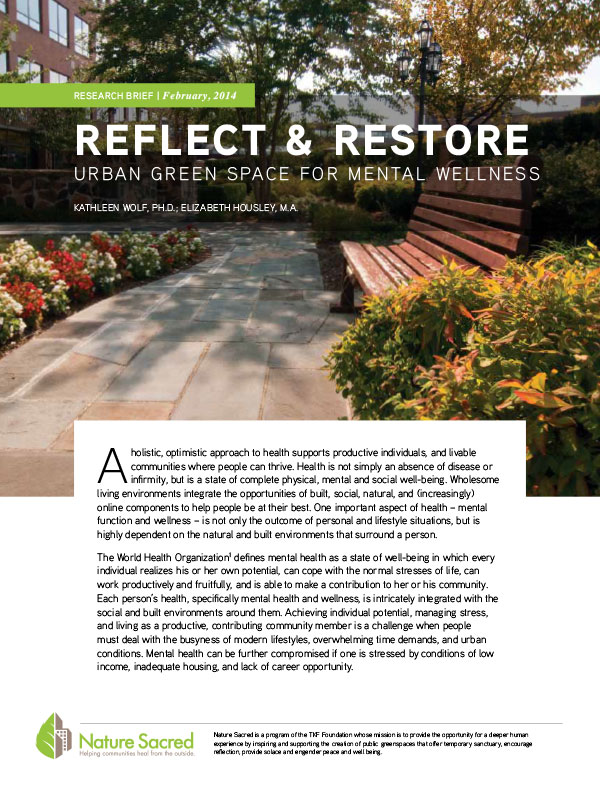Report
Reflect & restore: Urban green space for mental wellness
Publication Date:
A holistic, optimistic approach to health supports productive individuals, and livable communities where people can thrive. Health is not simply an absence of disease or infirmity, but is a state of complete physical, mental and social well-being. Wholesome living environments integrate the opportunities of built, social, natural, and (increasingly) online components to help people be at their best. One important aspect of health – mental function and wellness – is not only the outcome of personal and lifestyle situations, but is highly dependent on the natural and built environments that surround a person.
The World Health Organization1 defines mental health as a state of well-being in which every individual realizes his or her own potential, can cope with the normal stresses of life, can work productively and fruitfully, and is able to make a contribution to her or his community. Each person’s health, specifically mental health and wellness, is intricately integrated with the social and built environments around them. Achieving individual potential, managing stress, and living as a productive, contributing community member is a challenge when people must deal with the busyness of modern lifestyles, overwhelming time demands, and urban conditions. Mental health can be further compromised if one is stressed by conditions of low income, inadequate housing, and lack of career opportunity.
